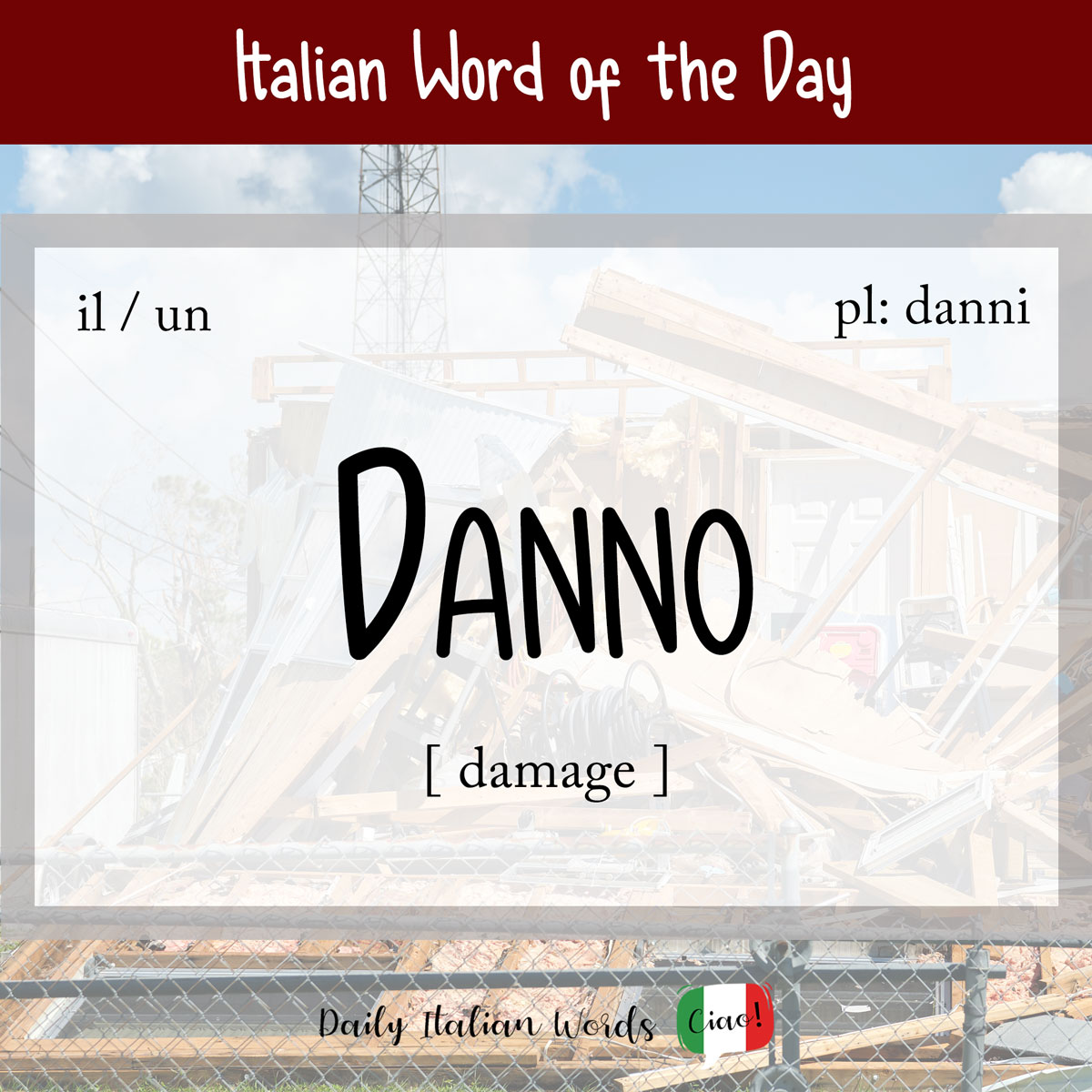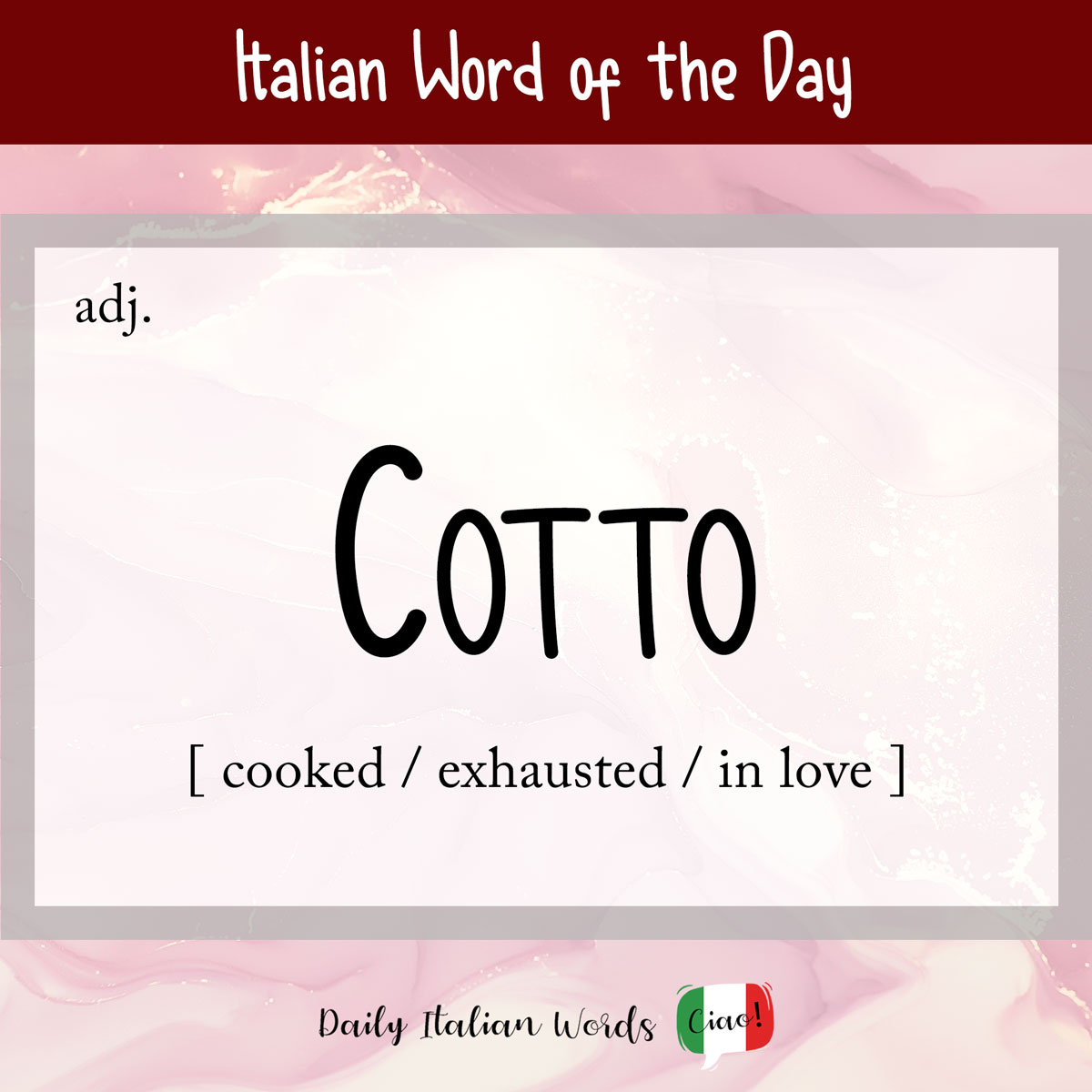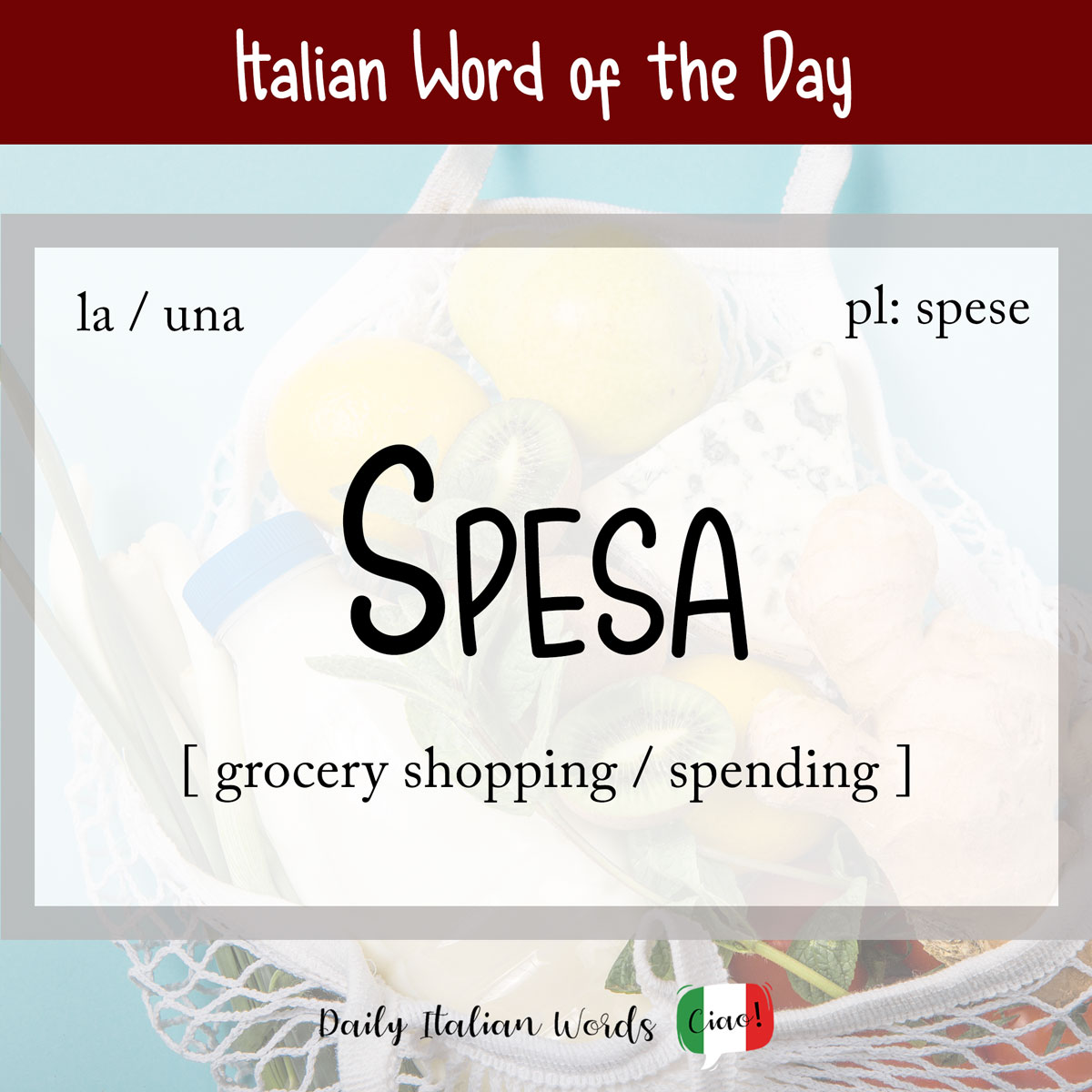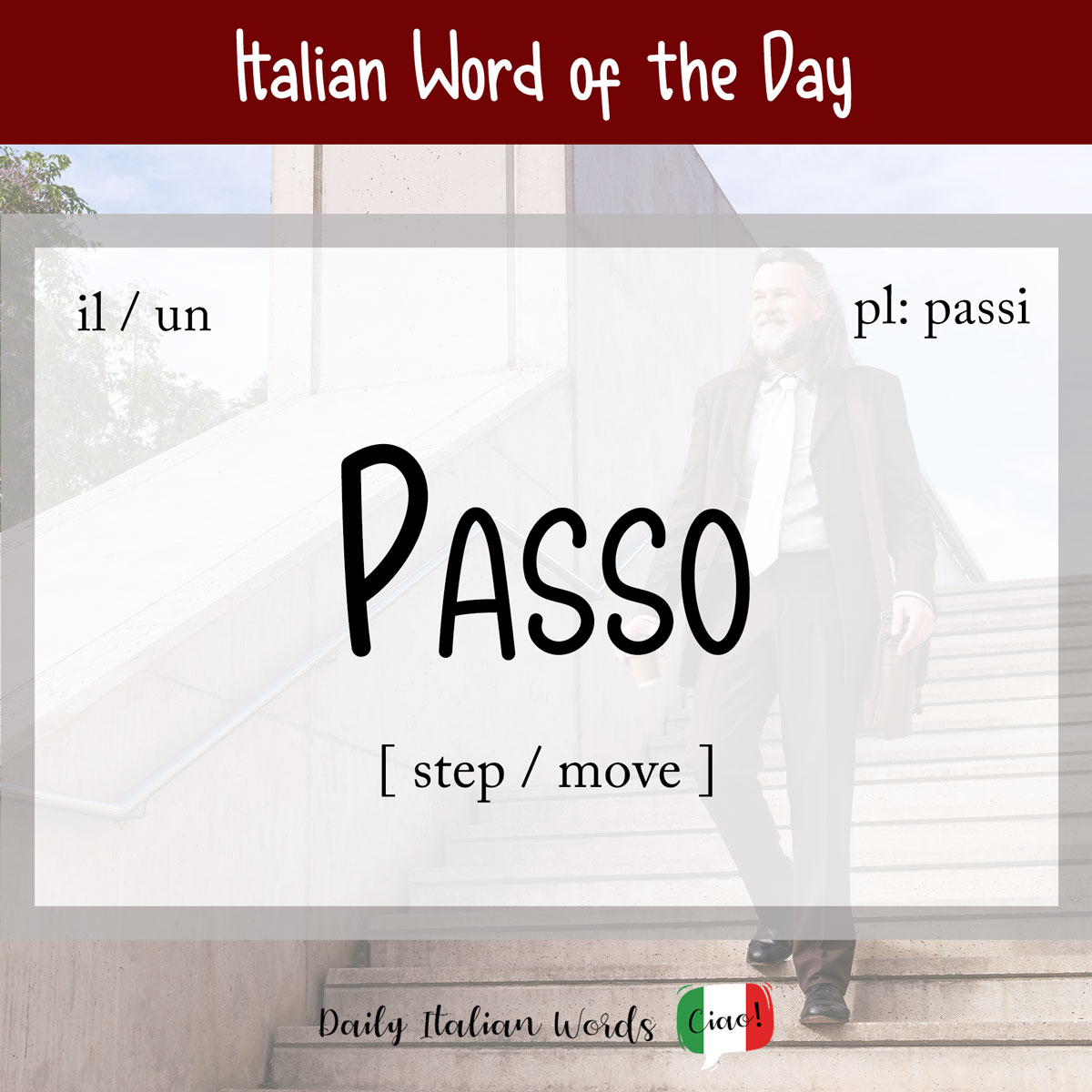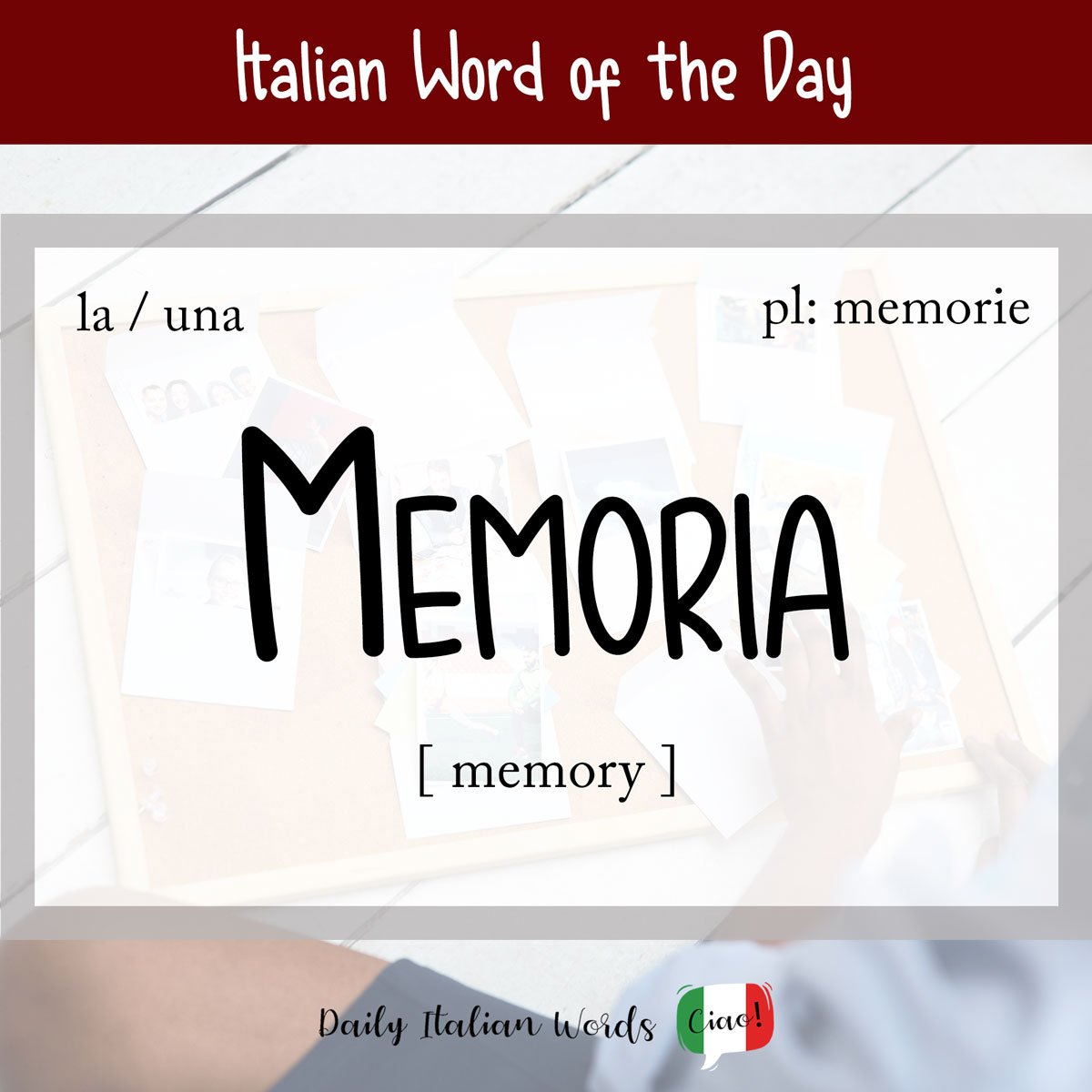Italian Word of the Day: Danno (damage)
In Italian, danno can be a masculine noun (il danno in the singular form, i danni in the plural) or a verb. The trick to figuring out which one you’re dealing with is context, and especially the article: if you see il or un danno, you’re looking at a noun. No article, then it’s a …

